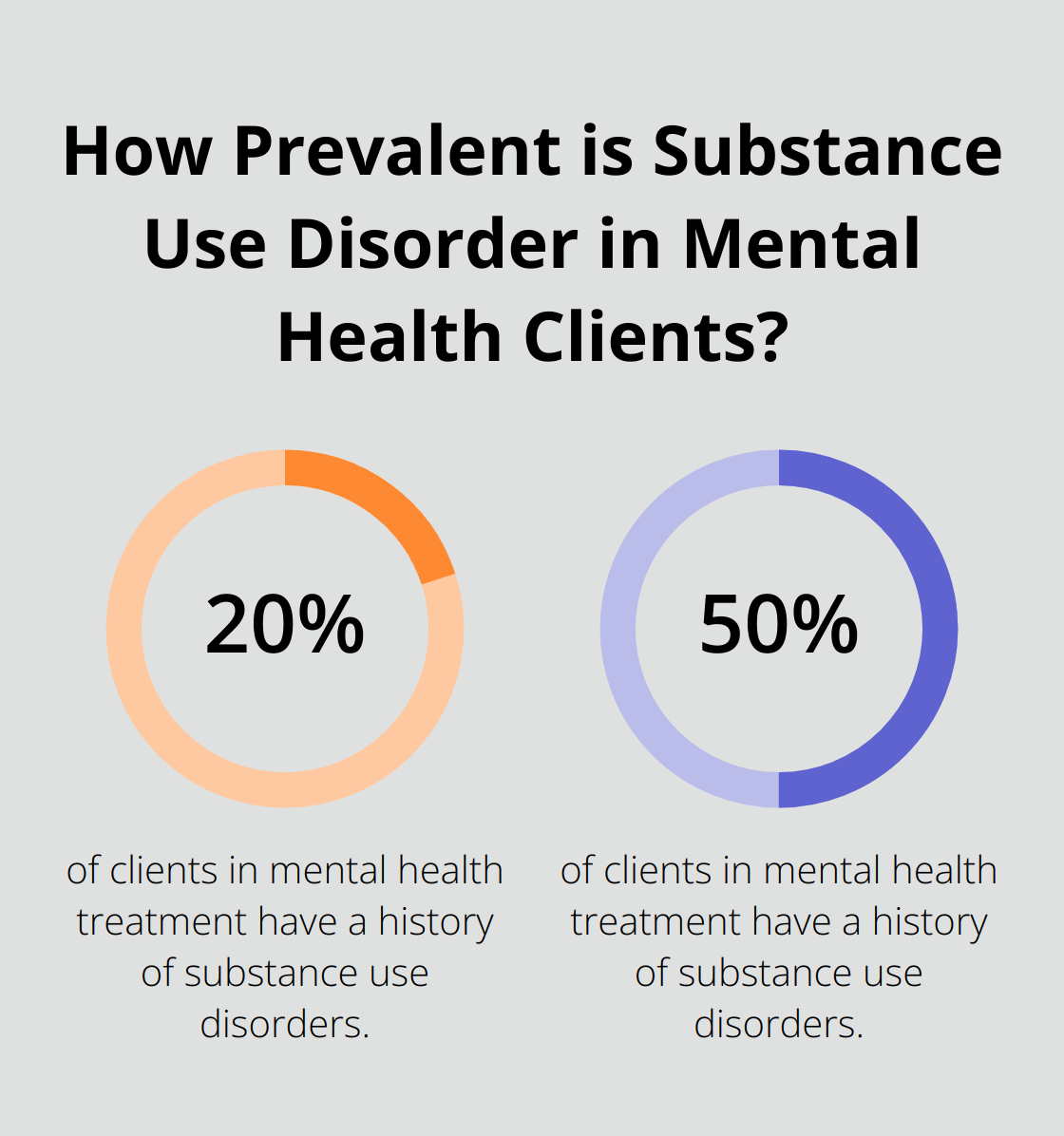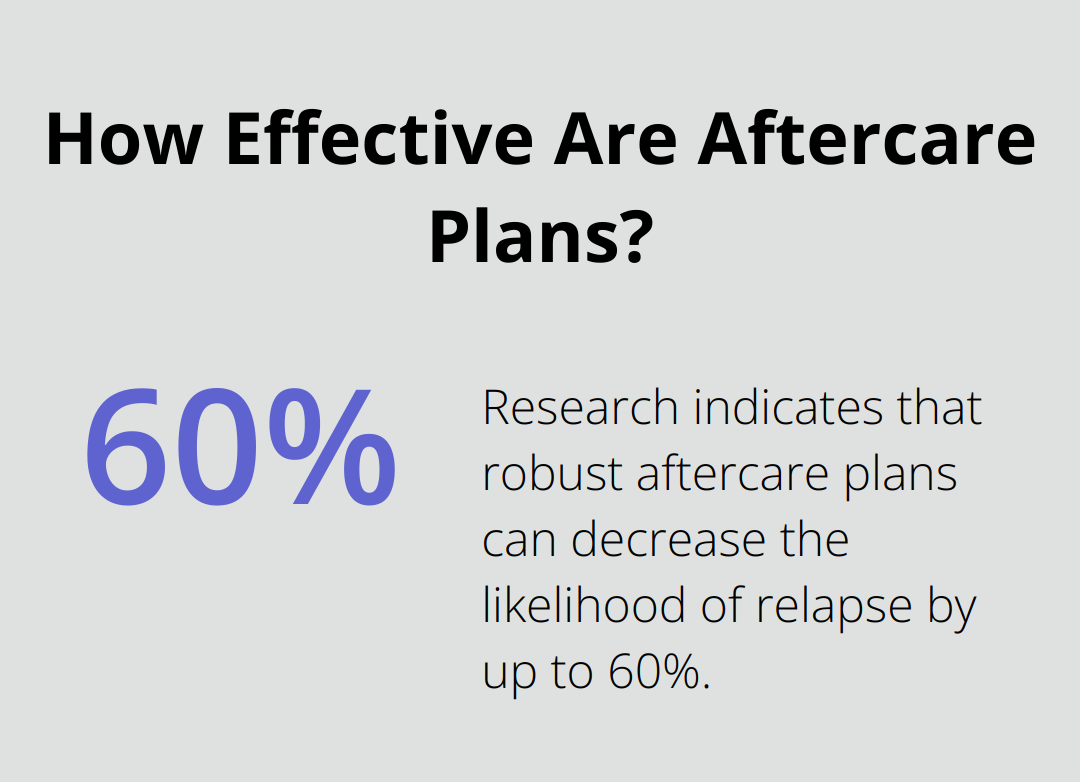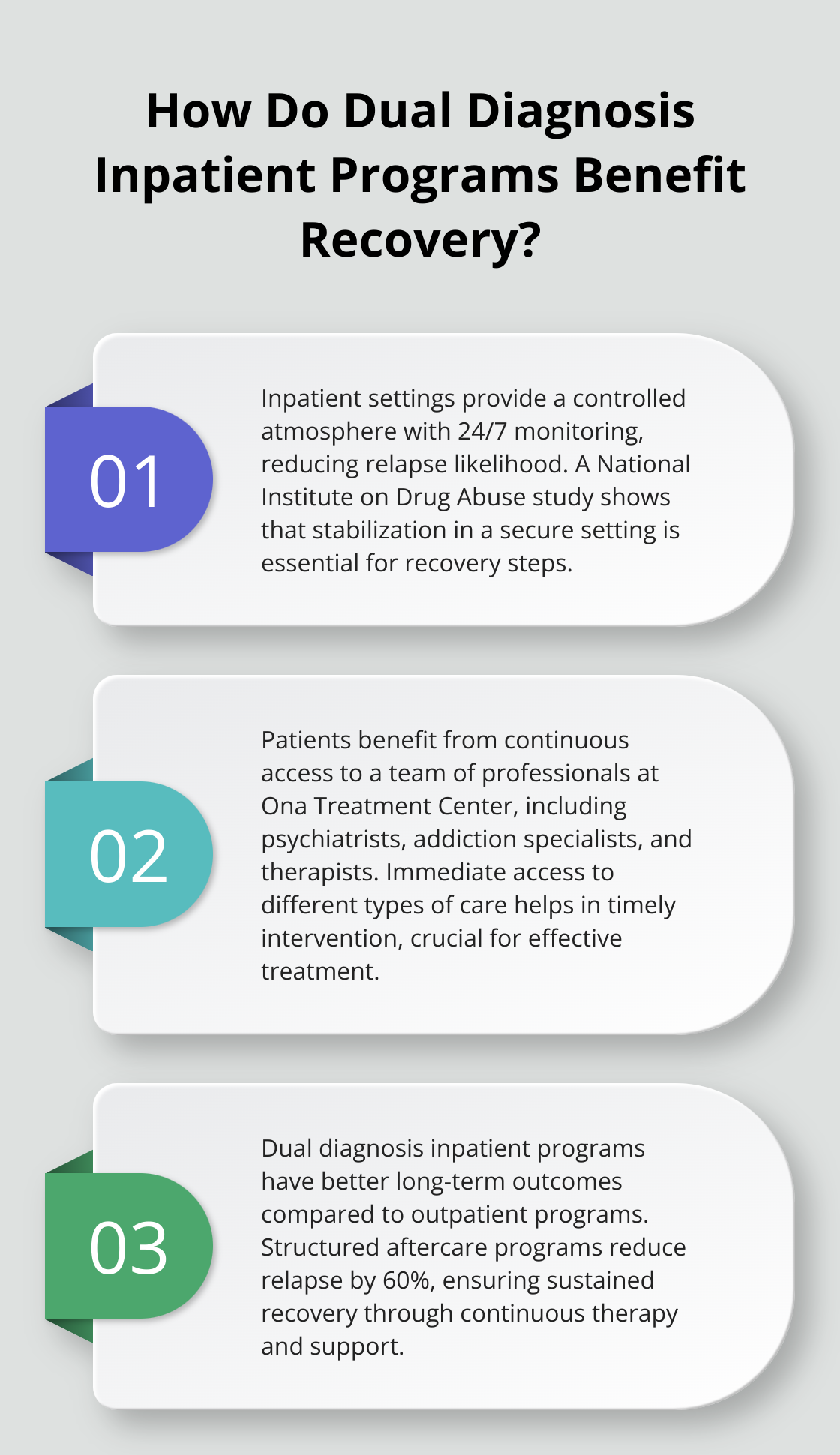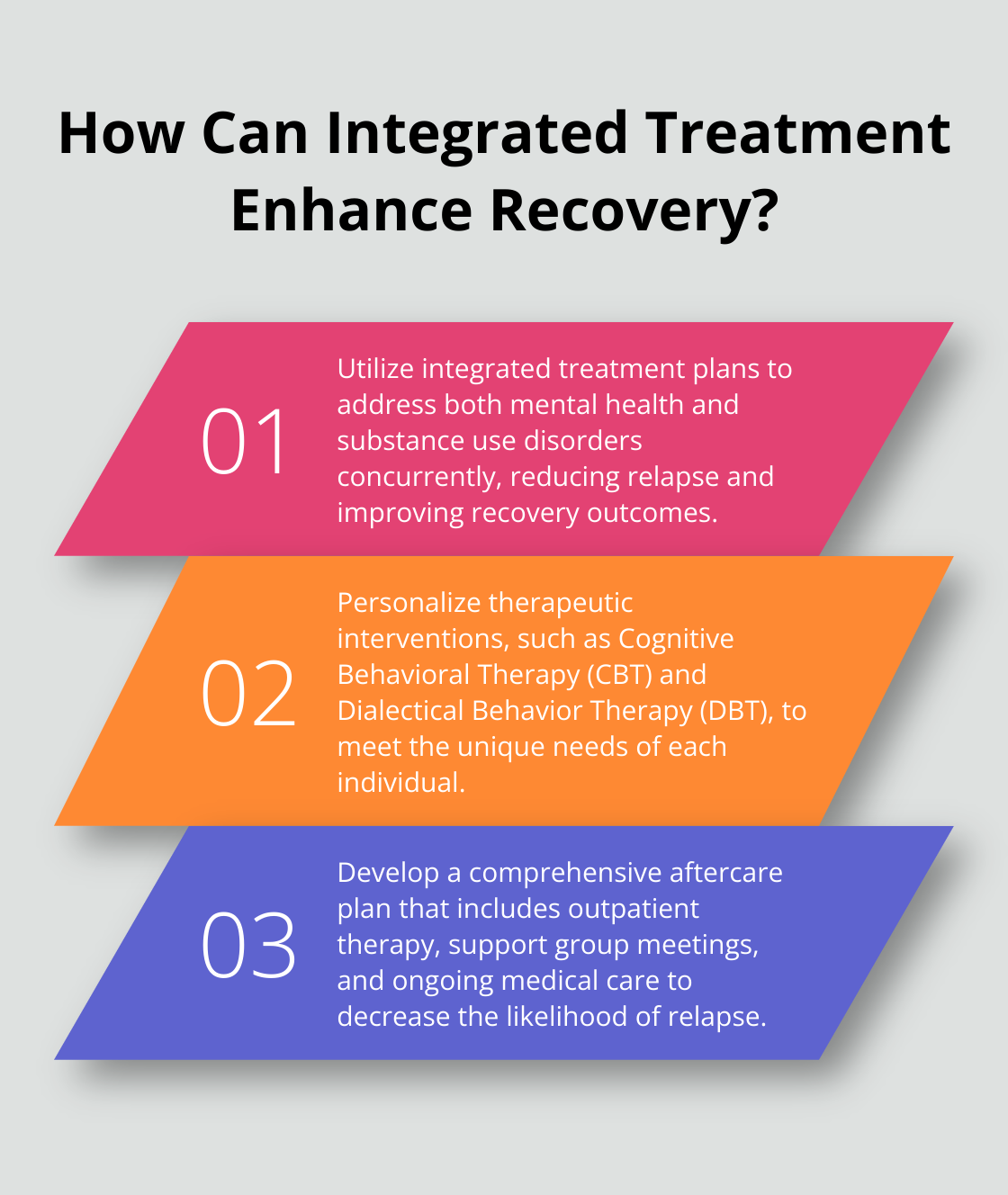Dual diagnosis inpatient programs play a vital role in addressing the complex needs of individuals facing both mental health disorders and substance use disorders.
At Ona Treatment Center, our approach focuses on integrated treatment plans, providing comprehensive care.
This blog explores what to expect from dual diagnosis inpatient programs and how they can promote lasting recovery.
What is Dual Diagnosis?
Dual diagnosis refers to the simultaneous presence of a mental health disorder and a substance use disorder. This combination can make treatment complicated, as both issues must be addressed together to promote recovery effectively.
The Importance of Treating Both Conditions Together
Ignoring one condition in favor of treating the other can lead to poor outcomes. Studies indicate that between 20% and 50% of clients in mental health treatment have a history of substance use disorders. Moreover, over half of individuals in substance abuse treatment have experienced a mental health disorder. Addressing both simultaneously allows for a more cohesive treatment plan that reduces chances of relapse and improves quality of life.
Common Co-Occurring Disorders
Common mental health disorders that co-occur with substance use disorders include depression, anxiety, bipolar disorder, and PTSD. For instance, alcohol addiction often accompanies anxiety and depression, while opiate addiction can be seen with conditions like PTSD. It’s essential to understand these combinations as treatment plans need to cater specifically to these dual conditions.
Key Statistics on Dual Diagnosis
Statistics shed light on the prevalence and importance of addressing dual diagnosis. In 2017, over 8.5 million adults in the U.S. suffered from dual diagnosis, making up about 3.4% of the population. Unfortunately, only approximately 7.4% of these individuals receive treatment tailored for both conditions. This gap highlights the need for integrated dual diagnosis programs.

Moreover, individuals with substance use disorder often have more severe symptoms than those with just one disorder, resulting in a higher risk of relapse and more complex treatment needs. Integrated approaches, which include therapy, medication, and support groups, show the most promise in addressing these complexities effectively.
Addressing Dual Diagnosis
Addressing dual diagnosis requires evidence-based therapies for both drug misuse and mental health to be combined in integrated therapy. This approach directly addresses dual diagnosis by tackling the underlying causes and fostering a holistic recovery process.
What Makes Dual Diagnosis Inpatient Programs Effective
Integrated Treatment Plans
Integrated treatment plans are the cornerstone of dual diagnosis inpatient programs at Ona Treatment Center. These plans don’t just tackle either the mental health disorder or the substance use disorder; they address both issues concurrently. Studies confirm that simultaneous treatment of co-occurring disorders reduces the likelihood of relapse. Our integrated approach combines psychiatric care, substance use treatment, and therapy to provide a cohesive and effective recovery path.
Personalized Therapeutic Interventions
One size does not fit all when it comes to dual diagnosis. Personalized therapeutic interventions are crucial for addressing the unique needs of each individual. Tailored therapy sessions include evidence-based methods such as Cognitive Behavioral Therapy (CBT) and Dialectical Behavior Therapy (DBT), which are proven to be effective in managing symptoms and preventing relapse. According to recent data, using targeted therapies can improve patient outcomes.
Comprehensive Medical and Psychological Support
Medical and psychological support at Ona Treatment Center provides 24/7 care, ensuring that patients receive the necessary attention at all times. Medical support includes medication-assisted treatment for substance use and psychiatric medications for mental health disorders. Psychological support features intensive counseling and group therapy sessions. This dual support system is designed to actively engage individuals in their recovery process, enhancing their chances of long-term success.
Focused Aftercare Planning
Transitioning out of inpatient care can be challenging, and structured aftercare planning is essential to maintain progress. Ona Treatment Center places a significant emphasis on developing a comprehensive aftercare plan that may include outpatient therapy, support group meetings, and ongoing medical care. Research indicates that robust aftercare plans can decrease the likelihood of relapse by up to 60%, making it an indispensable part of the recovery journey.

Comprehensive approaches in dual diagnosis inpatient programs are effective in tackling the complexities of co-occurring disorders. By integrating treatment plans, personalizing therapeutic interventions, and providing round-the-clock medical and psychological support, the chances of a successful recovery are significantly enhanced.
What Are the Benefits?
Dual diagnosis inpatient programs offer critical advantages that can make all the difference in recovery. These programs are designed specifically to address the intricate relationship between mental health disorders and substance use disorders.
Stabilization in a Safe Environment
A safe environment is vital for individuals with dual diagnoses. Inpatient settings provide a controlled atmosphere where patients are monitored around the clock. This constant supervision helps manage withdrawal symptoms and reduces the likelihood of relapse. A National Institute on Drug Abuse study shows that many individuals who develop substance use disorders (SUD) are also diagnosed with mental disorders, and vice versa, making stabilization in a secure setting essential for initial recovery steps.
24/7 Access to Multidisciplinary Support
Continuous access to multidisciplinary support is a game-changer for those undergoing treatment. At Ona Treatment Center, patients benefit from a team of professionals that includes psychiatrists, addiction specialists, and therapists. This comprehensive support team ensures that every aspect of a patient’s health is addressed. Studies reveal that integrated care benefits are well known, yet true integration is difficult. Immediate access to different types of care helps in timely intervention, which is crucial for effective treatment.
Better Long-Term Outcomes
The long-term outcomes of dual diagnosis inpatient programs are notably better than those of outpatient programs. Structured programs that extend beyond inpatient treatment into aftercare are key components. Research suggests that dual diagnosis patients who participate in structured aftercare programs are 60% less likely to relapse. This structured approach includes continuous therapy, medication management, and regular support group sessions, fostering sustained recovery and stability.

In conclusion, dual diagnosis inpatient programs offer substantial advantages through stabilization, 24/7 multidisciplinary support, and improved long-term outcomes. Taking these steps significantly increases the chances of a successful recovery.
Conclusion
Dual diagnosis inpatient programs play a crucial role in addressing the complexities of co-occurring mental health and substance use disorders. At Ona Treatment Center, we focus on integrated treatment plans that cater to both conditions simultaneously. This approach improves the chances of long-term recovery by addressing the root causes and providing comprehensive care.

Choosing the right program is essential for effective treatment. Look for programs that offer personalized therapeutic interventions, 24/7 medical and psychological support, and structured aftercare planning. Integrated treatment plans incorporating therapies like Cognitive Behavioral Therapy (CBT) and Dialectical Behavior Therapy (DBT) are particularly effective in managing symptoms and preventing relapse.
If you or a loved one is struggling with dual diagnosis, seeking help can be a life-changing decision. Experience personalized and holistic care at Ona Treatment Center. Our evidence-based Living in Balance program offers tailored treatment plans, individual and group therapies, life skills development, and a supportive community to help you transition smoothly back to everyday life.
Start your journey toward a brighter future today with the support of dedicated professionals who understand the challenges of dual diagnosis. Your path to recovery begins here.






